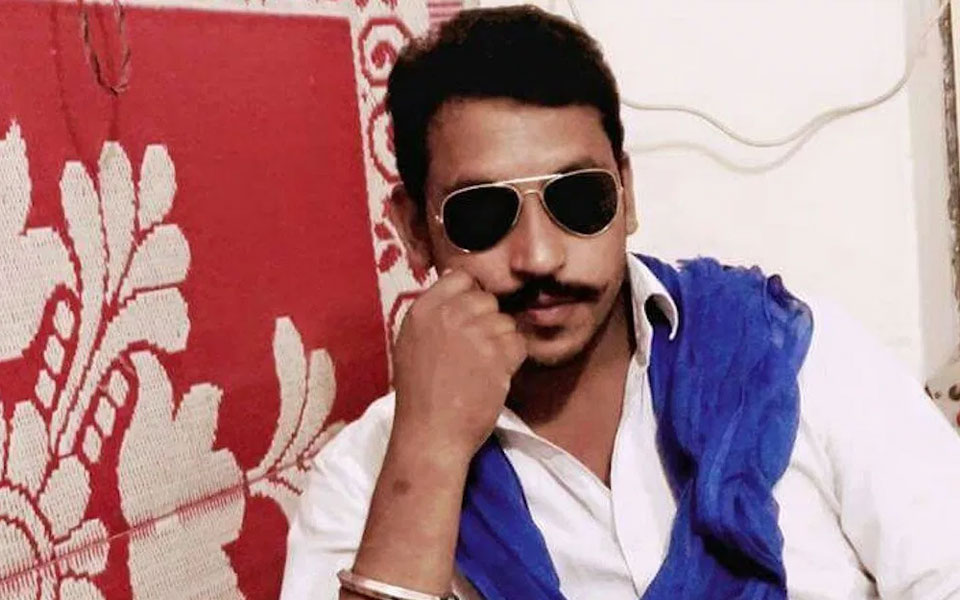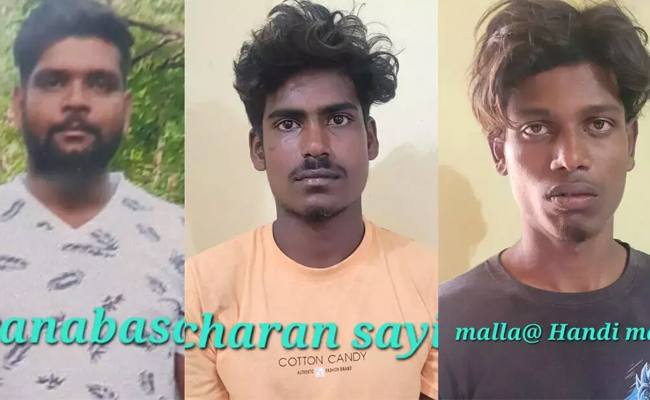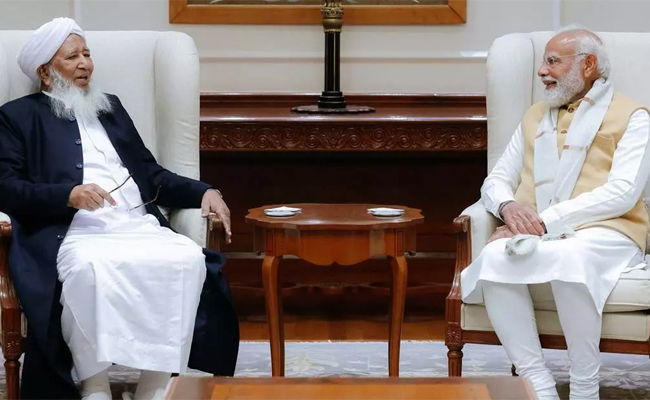The celebration in Saharanpur’s Chhutmalpur has just begun. The man of the moment is Bhim Army founder Chandrashekhar Azad ‘Ravan’, who is out on bail.
“Have faith in me,” Bhim Army founder tells a gathering in the chaupal outside his house. “I don’t make random and baseless statements. In a year and a half, I will form an organisation equal to or bigger than the Rashtriya Swayamsevak Sangh. The country will run as per the ideals, as it should have.”
In an interview with Newslaundry, he says the 16 months in jail have made him more resolute and determined about his political and social goal. Chandrashekhar says he will work towards dethroning the Bharatiya Janata Party (BJP) and has a dream of clinching power at the Centre. The advocate and Dalit activist spoke about his life in jail, his political options and why he is declaring war against the BJP and Sangh Parivar.
The Bhim Army founder was arrested by the Uttar Pradesh police in the aftermath of protests and arson triggered by inter-caste violence in Saharanpur's Shabbirpur village in May, 2017. Chandrashekhar had organised a rally in Delhi where he announced that he will surrender in front of the police. He says both the Delhi police and UP police refused to arrest him initially. When asked why he went underground after the Delhi rally, he said, "My sources told me that the UP police intends to kill me in an encounter."
Though Chandrashekhar refers to Bahujan Samaj Party (BSP) supremo as “Buaji”, Mayawati, in a presser after his release from jail, lambasted the Bhim Army founder: “The one involved in the caste violence against Dalits in Uttar Pradesh’s Shabbirpur village and now released on the bail, which is part of the BJP’s strategy is now using my name. He is calling me Bua and claiming of blood relation. I can’t have any wholehearted relations with people like these.”
When asked to respond to Mayawati’s criticism of the Bhim Army, Chandrashekhar says, “I don’t hold any grudge against her. She might have been misled about me or someone might have provoked her against me. She is my buaji, she has all rights to speak about me. Ye humare parivarik rishtein hain. Ghar ke maamlon mein hum doosre logon ko nahi involve karna chahte [this is an issue within the family, and I refuse to involve outsiders in it].”
Speaking on the role of non-Dalits in his Dalit uprising, he adds, “This is a Bahujan movement.” He further added, “When the national committee [of Bhim Army] will be declared, you will see people from the Bahujan community in key positions. It will be run by people from the Bahujan Samaj.” However, he says there can be space for anyone who wants to work for the cause.
One thing that he is very clear about is his goal ahead, that is, the expansion of Bhim Army. “My fight is against the BJP,” he says when asked whether he is up against the state government or the Centre.
Let the Truth be known. If you read VB and like VB, please be a VB Supporter and Help us deliver the Truth to one and all.
New Delhi (PTI): Star batter Smriti Mandhana, who played a pivotal role in India's historic 2025 Women's World Cup triumph, was named the BBC Indian Sportswoman of the Year for 2025 at a glittering function here on Monday.
Chess prodigy Divya Deshmukh won the Emerging Player of the Year award, for her historic FIDE Women's World Cup triumph at just 20.
Preethi Pal was named the Para-Sportswoman of the Year, for winning two bronze medals at the 2024 Paris Paralympics in track and field, while Anjali Bhagwat was honoured with the Lifetime Achievement Award, recognising her pioneering career as India's first woman shooter to reach an Olympic final and her trailblazing success on the world stage.
Mandhana, who is currently touring Australia with the Indian team for multi-format bilateral assignments, said in a video message: "Thank you BBC for giving me the awardfor Best Sportswoman of the Year. 2025 was a special year for women's cricket, especiallytowards the end we had a World Cup and I'm happy I could contribute and help India win matches.".
At 29, the left-handed batter is already among the game's greats, with the second-highest number of centuries in women's One Day Internationals and ranking third in total runsscored among current players worldwide.
Hailing from Sangli city in Maharashtra, the affable Mandhana was inspired by her father and brother, both of whom played cricket at the district level.
In September last year, she made a 50-ball hundred against Australia – the fastest 50 over international ton (men and women) by an Indian in the format, breaking Virat Kohli's record.
The award winners were decided by a distinguished grand jury comprising Leander Paes, Deepa Malik, and Anju Bobby George.
Praising the athletes' achievements CEO of BBC News, Jonathan Munro said: "Congratulations to this year's winners who showcase the very best in sporting excellence. The BBC World Service is committed to bringing such stories of human endeavour and outstanding success to audiences across India and around the world.".
Additionally, the ceremony also celebrated a wide spectrum of talent and impact, recognizing star performers and changemakers for redefining the landscape of Indian sport.
BBC Star Performers of the Year 202.
• Indian Women's Cricket Team: for their historic World Cup victory.
• Ekta Bhyan, Deepthi Jeevanji and Preethi Pal: for their trailblazing performances at the World Para Athletics Championship.
• Indian Women's Cricket Team for the Blind: for their inspiring World Cup victory.
• Indian Women's Kabaddi Team: for their smashing victory in World Cup.
.
BBC Changemakers of the Year 202.
• Indian Women's Ice Hockey Team: for breaking barriers in a non-traditional sport.
• Rajbir Kaur: Indian field hockey player and former captain of the women’s national team.
• Savita Punia: Indian field hockey player and current member of the national team.
• Paani Devi: recognised for her impactful contribution to grassroots sport.





